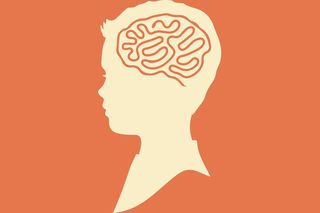
The Way Toxic Stress Shapes Children’s Brains
It keeps them from building the region devoted to learning.

We’ve explained how toxic stress in both men and women can affect reproduction and fetal development. But once born, kids experience the world directly — which means they experience their own stress. And that, too, can affect their development if the stress becomes toxic.
What is toxic stress in kids?
Stress is a very broad term, used to describe anything from mild irritation to severe trauma. Some stress for children is okay — just a part of like. A dirty diaper, a shot at the doctor, or the first day of school can all trigger a stress response, but these are positive stressors — limited, non-threatening moments of worry that help children learn to manage their emotions and navigate life.
Negative stress is a different matter. Negative stress in kids is anything that causes frequent or extended activation of a stress response. The death of a loved one would fall in this category, as could severe bullying, a natural disaster, or a serious injury; a missed snack would not — even if it inspires an epic meltdown that makes bystanders worry there’s been a serious injury.
Negative stress can either be tolerable or toxic for children — and parents and primary caregivers play a key role in the differentiation. As long as a negative stressor is a limited, time-bound experience and the child feels supported by adults who help them manage their emotions and navigate their circumstances, the child can likely weather the experience with minimal damage. For babies, this means establishing a secure attachment, that is, a rock-solid foundation that sets up the kind of loving and supportive relationship that can help older children through negative stress.
How toxic stress affects the brains of children
However, without that support or an end date, the negative stress becomes toxic. And some scenarios in childhood can be toxic regardless – emotional or physical abuse or neglect, poverty, severe postpartum depression with no primary caregiver other than the mother. In these cases, or in earlier cases when parents aren’t supportive, the body’s stress response overwhelms other systems, including the brain, and inhibits healthy development. Neural connections in brain regions devoted to learning and reasoning are weaker and fewer in young children who experience toxic stress; in fact, children who experience toxic stress can actually lose neural connections right when they’re meant to be forming them rapidly. It’s a fallout with lifelong consequences.
So, some amount of stress in a kid’s life is unavoidable. And unfortunately, some of that stress may well be negative. However, with a loving adult to act as a buffer to the negative stress, kids can come out of a sad, upsetting or injurious experience with no lasting physiological damage.
Related


Throw Out Your Rubber Duckies
